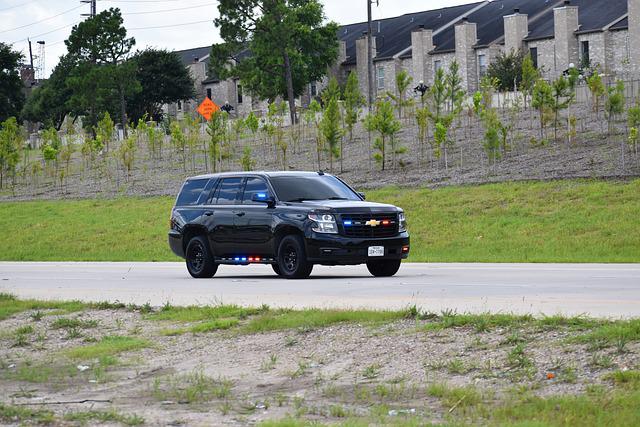How Much is a Background Check in California?
Michelle Wilson - July 22, 2023

Everyone will likely come across a background check at least in their lives. For example, as a job applicant, your job may ask to do a background check on your behalf, or you might be going on a Tinder date with a stranger that has the potential to be a criminal mastermind. Unfortunately, a comprehensive test that you receive in a timely fashion is not free.
According to recent online data, the cost of a background check runs anywhere from $25 to $51 if you do it through the government or $100 or more for a check done privately.
Table of Contents
What Shows Up In a California Background Check
Depending on if you choose to DIY it or get the help of a third party, requesters are likely to get the flexibility to customize the types of information they hope to receive. However, common information often sought by employers includes criminal records, employment verification, education verification, and credentials verification. For criminal records, background checks typically reveal criminal charges, filing dates, case dispositions, disposition dates, offense levels, and sentencing information. In comparison, employment verification is crucial for confirming the accuracy of applicants’ employment history and identifying any embellishments or false claims. This verification process provides information on the duration of employment at each job and the positions held.
Another common check is education verification which helps employers ensure that candidates possess the required qualifications. It verifies the institutions attended, dates of attendance, and degrees or certificates earned. For positions requiring specific professional credentials or licenses, credentials verification is important. This verification process ensures that candidates possess the qualifications for their roles, minimizing the risk of negligent hiring claims.
What Sources of Information Can A Background Check Consider
If the background check is comprehensive, it should consider both criminal justice agencies and non-criminal justice agencies as sources of personal information. These sources include criminal and arrest records, court records, credit reports obtained from consumer reporting agencies, worker compensation records, references, education records, check writing history, tenant history, DMV driving and vehicle registration records, immigration records, insurance claims reports, sex offender registry lists, social security records, and state licensing records. Bear in mind that while these are all the sources data might come from, not all background checks collect information from every single source listed; the exact sources depend on the purpose of the background check.
Other limitations and exemptions stem from California law, which restricts what data a person can obtain from any of these sources. Although for job pre-screening checks, it is safe to assume that authorities will include criminal records. Online data from the National Association of Professional Background Screeners shares that 57% of employers are now using credit checks as part of their background screening process, with a general upwards trend from previous years.
How Far Back Do Background Checks in California Go?
California’s timeframe for reporting criminal convictions on employment background checks is limited to seven years. As outlined in the Investigative Consumer Reporting Agencies Act, any misdemeanors, complaints, indictments, arrests, and convictions that exceed these seven years will not be in a background check. Authorities will also not report full pardons, expungements, and arrests without subsequent convictions at all.
Moreover, according to Article 2 of Civil Code 1427-3237 in California, employers must retain copies of employment background checks for at least two years. This code mandates that investigative consumer reporting agencies make a copy of the report available to the consumer upon request and proper identification for at least two years from the date they provided it to the employer or other relevant parties.
When Will I Receive My Background Check Results?
The duration of a California background check can range from a few minutes to days or, in cases of extreme backlog, up to a month. Unfortunately, public data doesn’t provide an exact estimate for government checks, although a background check company can often return the results quicker. Although variation will still occur with the type of background check, the purpose, and the information about the person requested. If you need your results quicker, such as if you want to know what comes up before a job interview, several tools allow you to run a free background check on yourself, although the information might not be as accurate.
Criminal Background Check
A criminal check will typically take one to three business days, but it can be longer. The duration depends on the databases authorities, the availability of digital court records, and the need for manual searches in counties with non-digitized records.
International Background Check
On average, public data suggests it can take a week or more, depending on the country’s privacy laws and cooperation with the United States. Some international background checks may require up to 20 days to complete but may be quicker if you go through a company that specializes in retrieval.
Employment Verification and Education Verification
Generally completed within three to five business days. The timeframe may vary based on the responsiveness of employers or educational institutions involved.
Drug Testing
Results can be available within one to six business days, depending on the type of drug test conducted. Saliva drug tests typically provide results within three days, while additional testing and review for positive results may extend the turnaround time.
Getting Disqualified
When conducting a background check on yourself in California, a few things can still be automatic disqualifiers for certain jobs. For example, one of the most common and arguably easiest to avoid is testing positive on a drug test. Failing such tests typically results in the withdrawal of the conditional offer of employment. Another is lying about past employment. After background checks, applicants who provide false information about their previous employment history will likely face employment denials since employers conducting employment verification checks can easily detect lies related to job responsibilities and employment dates.
A third, popularized with the television show Suits, was that attendance at prestigious educational institutions or falsely claiming degrees could lead to employment rejections. Employers verifying education credentials have the means to identify dishonesty and are less likely to hire applicants who lie about their educational background.
Getting Employed With a Criminal History
If you have a criminal record, it can be easy to feel discouraged when putting your first application out there. Fortunately, as of January 2018, California began enforcing Ban the Box laws to ensure employers can only inquire about an applicant’s criminal records after determining that they meet the minimum requirements for the position. Authorities enacted this law to ensure equal opportunities for candidates with criminal histories during the application process since over one-third of Californian citizens have a criminal record, and online data suggests for these ones another 50% drop in the likelihood of them receiving a callback was common. Therefore, take comfort in knowing that employers must assess applicants’ qualifications before conducting a criminal background check, so you can defend your history before an employer asks.
Related Posts
Recent Posts
Popular Posts
Sorry. No data so far.








